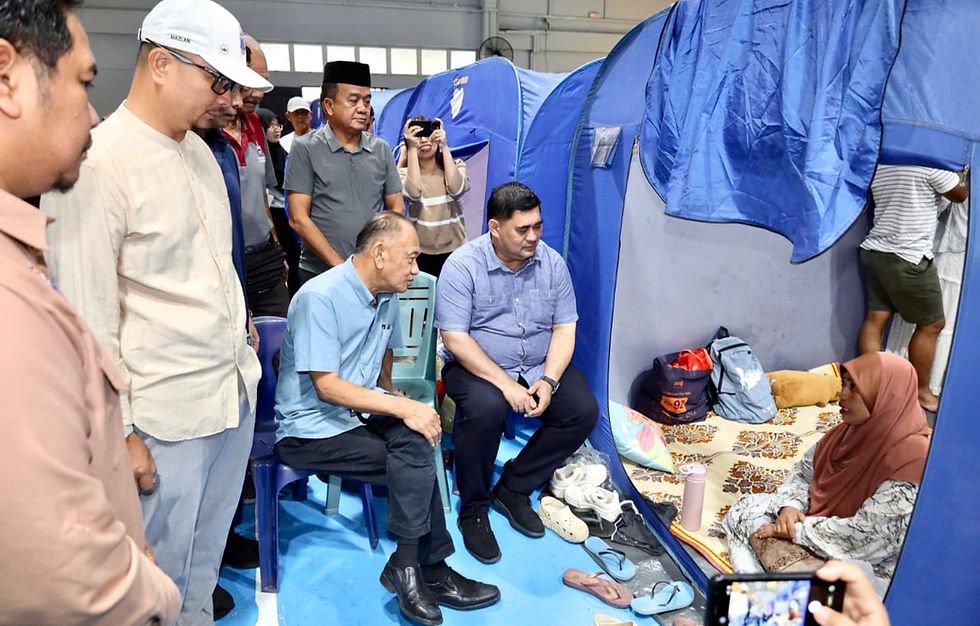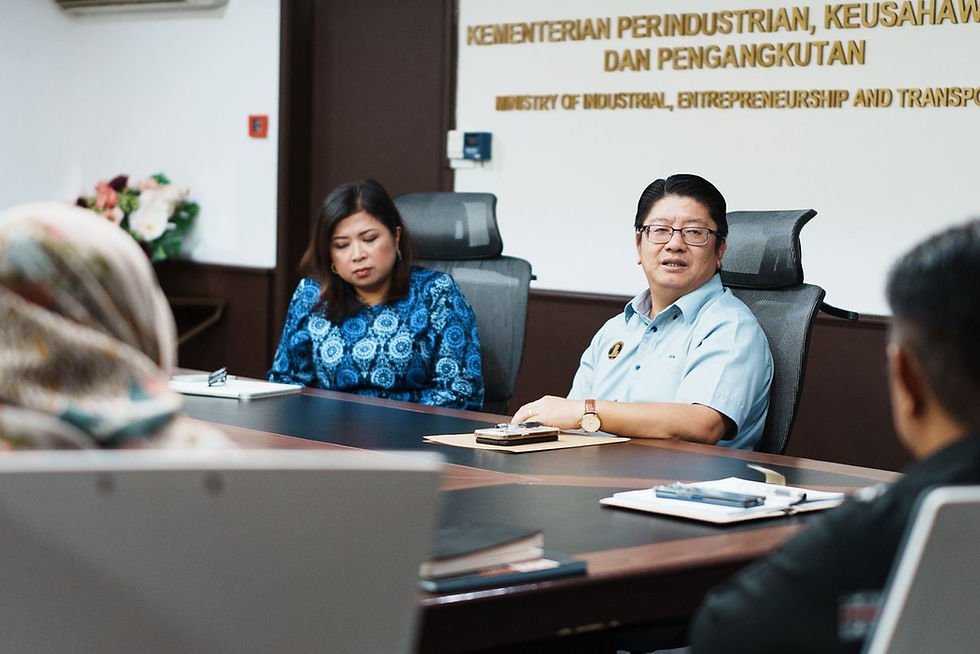Zakat and its contemporary issues discussed in roundtable
- nabalunews
- Sep 24, 2024
- 2 min read

24 September 2024
By AVV
KUALA LUMPUR: Emerging technologies such as blockchain, artificial intelligence (AI), and digital payment systems can enhance the management, distribution, and tracking of zakat.
Minster of Entrepreneur Development and Cooporative (MEDC) Datuk Ewon Benedick said these innovations can make the process more efficient, transparent, and accessible, ultimately ensuring that zakat reaches those in need more effectively.
"However, as we explore these possibilities, we must also ensure that these innovations remain in harmony with the ethical and spiritual foundations of zakat," he said when speaking during the 5th International Shariah Scholars Roundtable (iSHAR) 2024, here today.
He mentioned that their theme “Zakat and Its Contemporary Issues” addresses a topic that remains profoundly relevant in today’s world.
Zakat is not only a cornerstone of Islamic finance; it is also a powerful mechanism for promoting social welfare, reducing inequality, and supporting the most vulnerable members of society, he said
When confronting unprecedented changes—whether through technological advancements, shifting economic landscapes, or evolving financial systems—discussions like these are essential to ensuring that Islamic finance continues to adapt and thrive.
He commended Bank Rakyat for its unwavering commitment to organising this roundtable and leading the conversation on Shariah-compliant finance.
"Bank Rakyat has consistently demonstrated leadership in the Islamic finance sector, and its efforts to host this event speak volumes about its dedication to advancing the field."
"As MEDC Minister, I want to highlight the significant role that Islamic finance plays in empowering communities and fostering entrepreneurial growth," he said adding that Islamic finance is built on principles that support ethical and sustainable business practices, making it an ideal framework for encouraging innovation and inclusive development.
Islamic finance offers alternative financing models that promote shared risk and reward, creating valuable opportunities for entrepreneurs, particularly those in underserved communities, he said.
According to him, when aligned with these objectives, zakat can act as a powerful catalyst for economic empowerment.
Zakat can be directed toward microfinance initiatives and capacity-building programs that equip individuals with the skills and resources necessary for business success.
In this way, zakat transcends traditional charity; it becomes a vital tool for fostering long-term development, breaking cycles of poverty, and enabling underserved communities to achieve economic independence.
According to him, Bank Rakyat exemplifies a strong commitment to advancing discussions around these issues.
Their dedication goes beyond mere dialogue; it encompasses tangible actions that empower communities and promote sustainable development, he said.
Also present during the event were Deputy Minister of MEDC Dato' Sri Ramanan Ramakrishnan, Dato' Sri Khairul Dzaimee Daud, Secretary General of MEDC, Datuk Mohd Irwan Mohd Mubarak, Chairman of Bank Rakyat, Dr. Azman Mohd Noor, Chairman, Shariah Committee of Bank Rakyat, Dato' Dr. Mohammad Hanis Osman, Chief Executive Officer of Bank Rakyat, Sheikh Dr. Nedham Yaqooby, Representative of the iSHAR Scholars, Members of the Board of Directors as well as Shariah Committee and Management Committee of Bank Rakyat.


















Comments